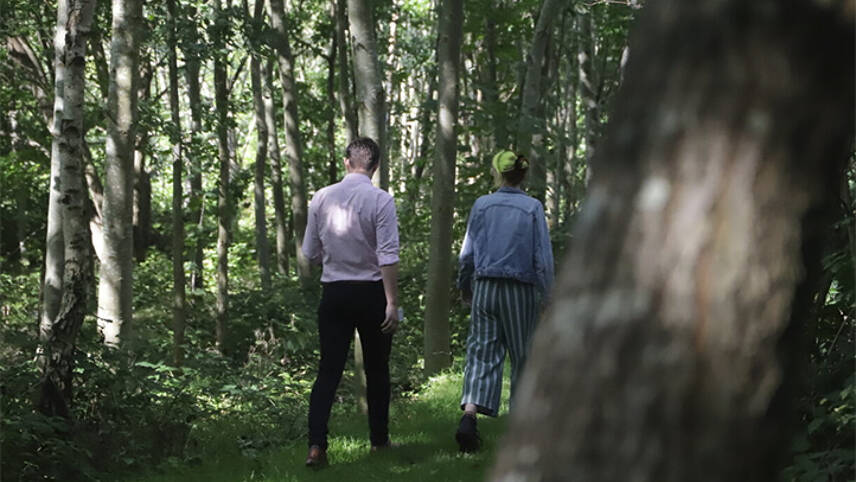This premium content is exclusive to edie Members.
To find out more about edie Membership, please click below.
If you are an existing member, login here

At a glance:
Who: Encirc
What: A major on-site woodland transformation scheme
Where: Elton, near Chester in Cheshire
When: BITC certification provided September 2023
Why: Improving local biodiversity
The challenge
The UK is one of the most nature-depleted nations in the world. The global Biodiversity Intactness Index lists the UK as having less than 10% of its biodiversity intact. Recent data presented to the UK Office for Environmental Protection has proven that work is still not on track to prevent species decline, including for priority species.
The private sector has a key role to play in protecting and restoring nature, and also in properly measuring and addressing any negative environmental impacts across its value chain. Businesses are increasingly investing in nature-based projects overseas, while others are looking for opportunities to create positive change in their own communities.
The solution
Encirc has transformed more than two kilometres of local woodland, some of which is on land that it owns for its site in Elton, Chester, Cheshire. It calls the location ‘The Woodland Walk’.
The changes have been delivered with input from Mersey Forest and local ecological experts. Changes are intended to restore the site, make future conservation work simpler and increase the site’s accessibility.
How the project works
Encirc has been working in partnership with local organisations in Cheshire on nature conservation and restoration for several years. For example, it facilitated the planting of 1,500 trees in 2015 in partnership with the Mersey Forest.
The planting of these trees was the first part of the work to deliver a ‘Woodland Walk’ through land adjacent to the factory. The idea, at this point, was to involve local schools with tree planting and to provide a more relaxing area near the site for employee breaks and meetings.
Subsequently, additional trees were planted by a cross-section of Encirc employees, and other improvements were made to the walk in partnership with local environmental experts. The walk was extended and developed further with additions including picnic benches and an open meeting space.
BITC has awarded Encirc with the Gold Level in its Business and Biodiversity Charter as a result of the work to develop the Woodland Walk, following a non-technical site review visit. Gaining the charter also meant that it needed to review broader organizational practices and supply chain practices to minimize negative nature impacts.
This award also requires businesses to engage consumers with nature-related issues and to co-develop and deliver its biodiversity strategy and projects with staff. Moreover, staff must be empowered to deliver further biodiversity-boosting activities at home and in their communities.
The BITC Business and Biodiversity Charter award is valid for a period of 36 months. Firms will then need to apply for a re-assessment. Gold is the second-highest possible award level after platinum.
At present, most of the sites with a gold or platinum award are in Northern Ireland. Encirc will aim for a platinum level award next time.
The results
Encirc has stated that its executive committee has shown “great support” for the project given the likely benefits to the community, employee wellbeing and biodiversity.
On the latter point, the walk is already attracting wildlife from the nearby Ince Marshes, including insects, ducks and woodpeckers.
There are also carbon benefits. Carbon removals resulting from the woodland’s restoration have been used by Encirc for carbon offsetting, to balance the carbon generated from employees recently attending a trade show. Encirc notably has a 2030 net-zero target for its operations.
Business benefits
Encirc has not yet quantified the benefits of this project in terms of financials, employee wellbeing or biodiversity. It is working with local nature groups to quantify biodiversity impact going forward.
Investment/savings
Encirc has not disclosed its level of investment in the Woodland Walk.
Industry context
PwC estimates that 55% of global GDP, equivalent to $58trn, is dependent on nature. The World Bank has stated that the global economy could lose almost $3trn by 2030 if certain ecosystem services collapse. Manufacturing is a sector which, like agriculture, is highly dependent on natural resources.
There is a push for businesses of all sizes and sectors to end practices that enable them to externalize their negative environmental impacts, instead developing robust biodiversity strategies including risk, opportunity and restoration.
Investing in projects off-site, often in the world’s most biodiverse or at-risk areas, has proven popular with many businesses. But this approach comes with its own challenges including verifying project credibility, and avoiding unwanted negative social consequences. As such, investing in on-site or local nature conservation and restoration projects has been the favored approach of businesses including mixer brand Fever-Tree, smoothie and juice brand innocent Drinks and caterer Compass Group.
© Faversham House Ltd 2024 edie news articles may be copied or forwarded for individual use only. No other reproduction or distribution is permitted without prior written consent.

